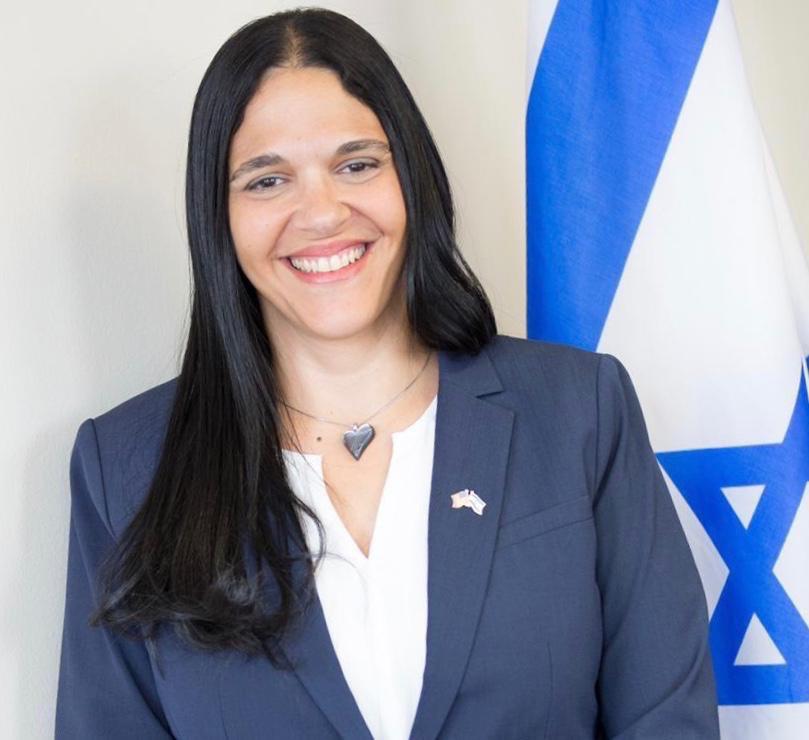
2020 DOR Message from Anat Sultan Dadon

This year as we commemorate the Holocaust Martyrs' and Heroes' Remembrance Day in Israel and in Jewish communities around the world, the traditional commemoration will be different than that of previous years. In Israel, the state ceremony at Yad Vashem will take place without an audience and will be broadcast though various media channels in order to reach everyone in their homes. Here in Atlanta as well, the circumstances this year have dictated a different way of commemorating. I would like to express my sincere appreciation to the Georgia Commission on the Holocaust for its consistent commitment to Holocaust remembrance and to combating antisemitism, even during these unique circumstances.
From 1941 to 1945, six million Jews were systematically murdered throughout Nazi-Germany and German-occupied territories, in what would become the largest genocide and the darkest of chapters in human history. As they were being ruthlessly persecuted, European Jewry witnessed the majority of their fellow countrymen stand aside and do nothing. Their friends, colleagues and neighbors mostly stood by and watched the murderous persecution unfold. The Nazis and their collaborators were, to a large extent, enabled and empowered by all those who stood by, without speaking out against the hate, the persecution and the ultimate murder of six million men, women and children.
While delivering a speech to the German Bundestag in 1998, Holocaust scholar Professor Yehuda Bauer said, "I come from a people who gave the Ten Commandments to the world. Time has come to strengthen them by three additional ones, which we ought to adopt and commit ourselves to: thou shall not be a perpetrator; thou shall not be a victim; and thou shall never, but never, be a bystander.”
Seventy-five years after the end of the Holocaust, we know all too well that anti-Semitism is unfortunately not confined to the past. There are those who still today, seek the destruction of the Jewish People and Israel, the nation state of the Jewish People. As the world is struggling with the COVID19 virus and its devastating effects, there are those who seek to blame the Jews, adapting the age old antisemitism to current times.
All too often when antisemitism is on the rise, the eyes turn to the Jews and to what they have to say about antisemitism— the Jewish state, the Jewish organization, the Rabbi, the Jewish professor or the Jewish student. Yes, Jewish people, leaders and organizations have a responsibility to be vocal on antisemitism, and many are.
But in order to effectively address antisemitism, every non-Jewish person and organization must first look inwards and consider what they are doing to stop the ignorance and hatred, to prevent the dangerously imminent bloodshed at the hands of those who hate and those who choose to remain silent. Some are doing so, but they alone are not enough. The moral responsibility of speaking out against antisemitism and any form of hate must not be the sole burden of those who are the targets of that hatred. We all share the responsibility to speak out, and to never be a bystander.